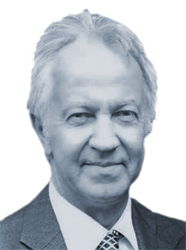 The ground is shifting, ever so slightly, on Kosovo, the Balkan state stuck in international limbo – in sport as much as politics – ever since seceding from Serbia, rump state of collapsed former Yugoslavia, four years ago.
The ground is shifting, ever so slightly, on Kosovo, the Balkan state stuck in international limbo – in sport as much as politics – ever since seceding from Serbia, rump state of collapsed former Yugoslavia, four years ago.
Kosovo, desperately poor and still recovering only slowly from the ravages of warfare, declared independence in 2008. This has been recognised by more than 90 nations, including most of the European Union.
For better or worse, Kosovo is also in the Eurozone. But it is not recognised by the United Nations and that has prevented it even applying for, never mind being granted, membership of world footall federation FIFA and European counterpart UEFA.
Serbia still lays formal claim to Kosovo and is supported, politically, by Russia which has reasons of its own for not wanting any encouragement offered to secessionist regions.
For the past four years the Kosovo Football Federation’s attempts to earn the right to play, at least, friendly matches against FIFA and UEFA member sides – both clubs and national teams – has been blocked.
Yet many Kosovo-born players have turned professional in Germany, Sweden and Switzerland – FIFA and UEFA’s own back yard – and Kosovo is included in the world federation’s Transfer Matching System.
FIFA has always been more sympathetic to Kosovo’s need for help than UEFA. The European federation, led by president Michel Platini, had always refused to lift a finger – until earlier this year when impatient and irritated FIFA president Sepp Blatter forced through his executive approval for Kosovar teams to play FIFA member sides.
Platini and the Serb federation objected vehemently but Blatter insisted he would not go back on the decision and summoned all sides to Zurich to discuss the ‘modalities’ of how matches would be staged. Further talks were then delayed by elections in Serbia – since Serbia’s political attitude is important.
Discussions are due to resume next month and Platini has finally signalled, in Monaco last week, a sense of UEFA recognition that it is time European football took a more pragmatic approach.
He told this writer: “This situation is very complicated, because a decision about Kosovo doesn’t just imply a decision about Kosovo and other countries but it can also have the consequence that other countries in Europe ask to take part in UEFA competitions.
“We are trying to find, with the help of Serbia, an agreement so that young Kosovars can play football. It is taking some time, because there have been some elections in Serbia, and the government isn’t there yet.
“But I think that in September/October we will come back with a proposal, and if the Serbians accept it – which I hope will be the case – so that football can be played in Kosovo, which is logical to my point of view.”
The key words were “which I hope will be the case” since Platini’s previous stance had suggested he was lined up with the Serbs.
One of the initial stumbling blocks for the Serbs has been how the Kosocvars would be designated at meetings. But there has been movement on this issue at political level.
The Belgrade government has agreed to take part in meetings alongside Kosovo with a footnote included in the accompanying documents and not the nameplate. Last week the Serb government adopted an instruction on those lines to all state officials involved in events also attended by Kosovo representatives.
Last February Serbia accepted a complex formula under which Kosovar delegations could join regional forums as “Kosovo*” with a footnote, rather than be represented by the UN Mission in Prstina, UNMIK. However, that has yet to be implemented in practice.






